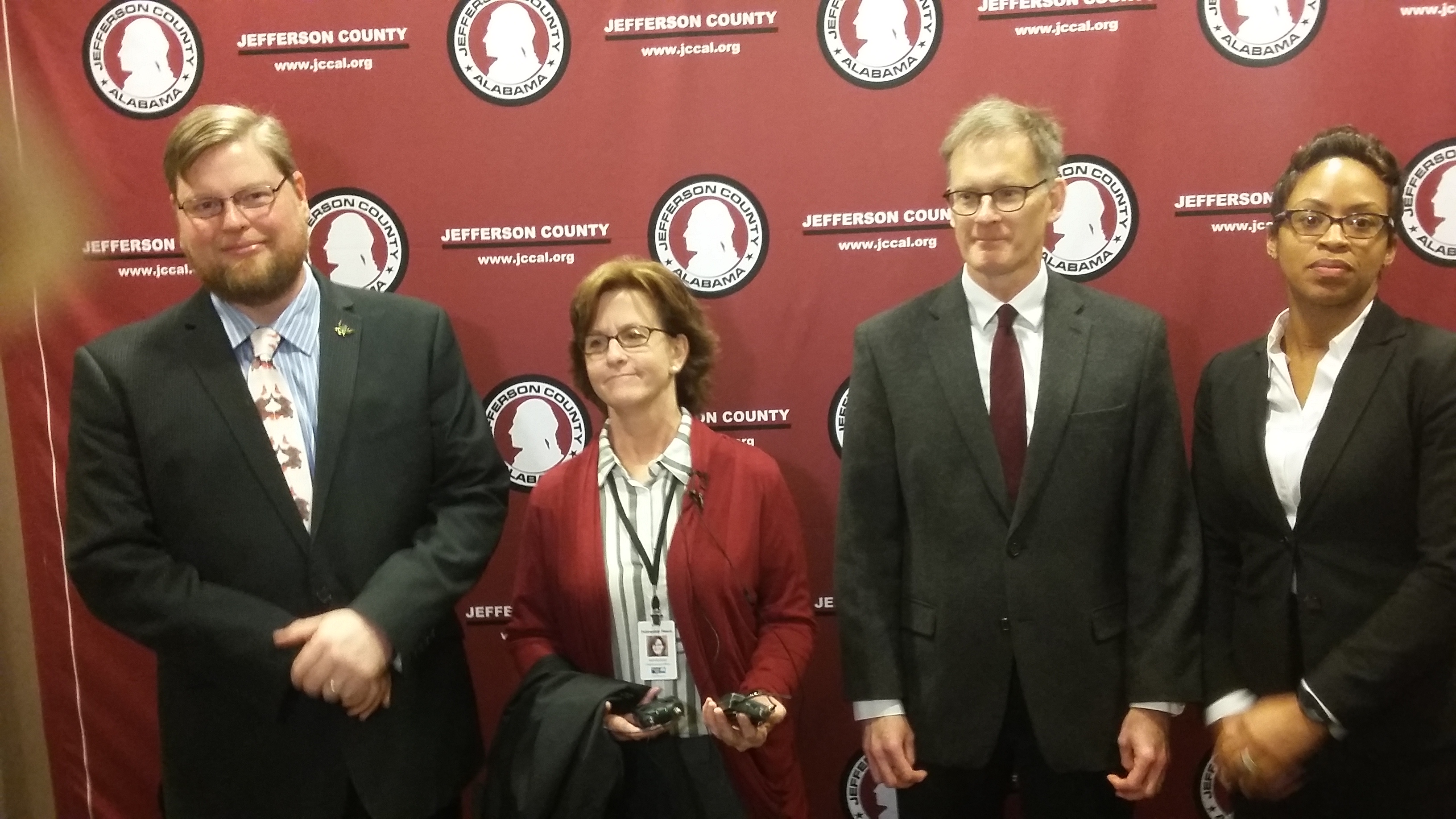
By Barnett Wright
The Birmingham Times

The Jefferson County Commission took steps this week to open an opioid clinic at Cooper Green Mercy Health Services.
“We’ve seen the statistics around the need,” said Armika Berkley, director of the facility.
Like most areas in the country, the opioid crisis has hit Jefferson County particularly hard including 600 total drug related deaths between 2013 and 2015, according to the coroner.
In 2016, there were 150 opioid drug overdose deaths and approximately the same number in 2017.
“This is indeed the biggest crisis that is facing Jefferson County,” said Commission President Jimmie Stephens. “The opioid crisis is a pandemic that is affecting everyone’s lives. [It] transcends all racial and socioeconomic boundaries. It’s just as prevalent in Mountain Brook as it is in Mulga.”
The University of Alabama at Birmingham (UAB), the Jefferson County Health Department, family court and Fellowship House are among the entities assisting with the program, which is funded for three years with a $3.9 million grant from the Substance Abuse and Mental Health Administration.
The funding will allow expansion of services already provided through Cooper Green’s Behavioral Health Services Clinic to include opioid treatment.
The clinic could be open to patients as soon as Feb. 1, county officials say.
Beth Bachelor, executive director of Fellowship House, a local residential treatment program providing services to the indigent, will serve as Jefferson County Coordinator for the program.
Part of the county’s approach is Medication Assisted Treatment (M.A.T.) such as Suboxone to address withdrawal symptoms and cravings.
“Is it a cure-all? No,” said Dr. Paul O’Leary, the county’s M.A.T. medical director. “That also has to do with therapy and treatment and education, not only for the patient but the family. The other thing to know is even with Medication Assisted Treatment, the longer you stay in it, the more likely you’re going to get better.”
Cooper Green is one of four places in Jefferson County to offer Suboxone.
“It does give you relief to the body so they have to go into withdrawals where you have chills, the feeling of flu like symptoms,” O’Leary said.
Bachelor, a veteran of recovery and mental health initiatives at the local, state and national level, said M.A.T. appears to be more effective than some other programs.
“We have tried everything we know to do within the limits of what we have over time with very little positive effect,” she said. “With Medication Assisted Treatment, we have had a transformational effect just on the people that I’ve been serving.
“The people I’ve been serving are more likely to stay in treatment, are more likely to finish treatment and more likely to follow up after treatment. More importantly they are likely to be alive,” she said.
Berkley said “Cooper Green is not the first and last stop. That’s why we recognize all of the partners and why we kept highlighting all the many partners that are part of this big collaborative,” she said.
The partnership also includes the Crisis Center, Community Foundation of Greater Birmingham, Northwest Alabama Treatment Center, UAB Substance Programs, The Addiction and Recovery Program at UAB and UAB Department of Emergency Medicine.




